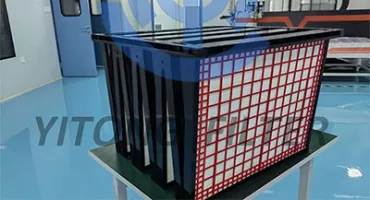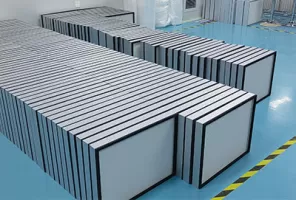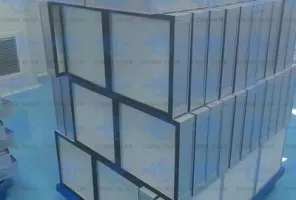 June 25, 2024
June 25, 2024
Choosing the best air filter for your HVAC system involves considering factors such as filter type, MERV rating, efficiency, and specific needs like allergen reduction. Here are some top recommendations across various categories:
1. Overall Best:
Filtrete Healthy Living Ultimate Allergen Reduction Filter (MPR 1900)
- MERV Rating: 13
- Pros: High efficiency in capturing small particles, long-lasting, excellent for allergy sufferers.
- Cons: Slightly higher resistance, which may affect airflow in some HVAC systems.
2. Best for Allergies:
Honeywell Home MicroDefense AC Air Filter
- MERV Rating: 11
- Pros: Captures pollen, dust, mold spores, and other allergens efficiently.
- Cons: Needs more frequent replacement than higher MERV rated filters.
3. Best for Pets:
Aerostar Allergen & Pet Dander Control
- MERV Rating: 11
- Pros: Specifically designed to capture pet dander and other allergens.
- Cons: May need more frequent replacements.
4. Best for High Efficiency:
Nordic Pure MERV 12 Pleated AC Furnace Air Filter
- MERV Rating: 12
- Pros: High efficiency in capturing a wide range of particles, good balance between air flow and filtration.
- Cons: Slightly higher cost.
5. Best Budget:
FilterBuy MERV 8 Pleated AC Furnace Air Filter
- MERV Rating: 8
- Pros: Affordable, good for basic dust and pollen removal, maintains good airflow.
- Cons: Lower filtration efficiency for smaller particles.
Key Considerations:
1. MERV Rating:
- Ratings from 1 to 16; higher numbers indicate better filtration.
- For residential use, a MERV rating between 8 and 13 is usually sufficient.
2. Filter Type:
- Fiberglass Filters: Inexpensive, basic filtration, good for larger particles.
- Pleated Filters: Better filtration, captures smaller particles, lasts longer.
- Electrostatic Filters: Uses self-charging fibers to attract particles, reusable and washable.
3. HVAC System Compatibility:
- Ensure the filter's MERV rating is compatible with your HVAC system's specifications. High MERV ratings can restrict airflow in some systems.
4. Specific Needs:
- Consider filters specifically designed for allergens, pet dander, or smoke if you have particular concerns.
Tips for Maintenance:
- Regular Replacement: Change filters according to manufacturer recommendations, usually every 1 to 3 months.
- Check HVAC Specifications: Ensure your system can handle the filter's airflow resistance.
- Monitor Air Quality: Adjust replacement frequency based on indoor air quality and usage patterns.
Choosing the right filter can significantly improve indoor air quality and extend the life of your HVAC system.
 Nov. 17, 2023
The Application of HEPA Filters in Gas Turbines
Nov. 17, 2023
The Application of HEPA Filters in Gas Turbines
 Feb. 13, 2025
H14 Filter: Everything You Need to Know
Feb. 13, 2025
H14 Filter: Everything You Need to Know
 Sep. 05, 2024
Why Medical Grade HEPA Filters are Essential for Clean Air in Healthcare Environments?
Sep. 05, 2024
Why Medical Grade HEPA Filters are Essential for Clean Air in Healthcare Environments?